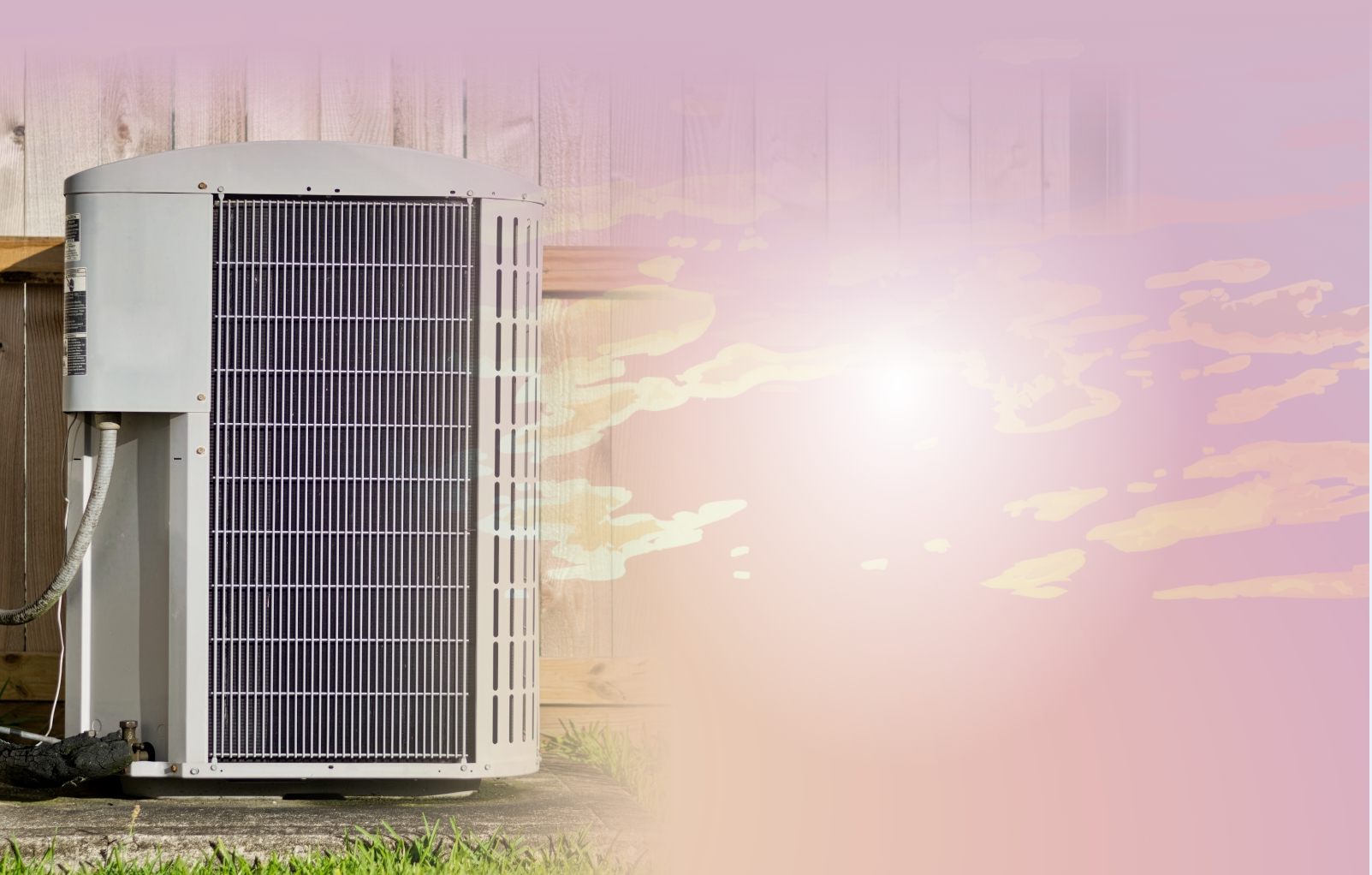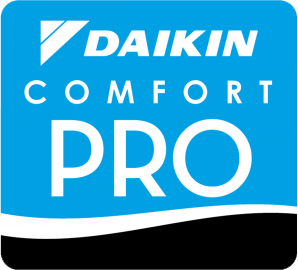Heat pumps deliver energy-efficient heating and cooling for year-round comfort. Routine maintenance keeps the system running at peak performance and lowers the risk of costly breakdowns. With regular professional care, your unit can also last longer. Home Comfort Solutions in Moore, OK, explains the key maintenance tasks your heat pump needs and the best schedule to follow.
How a Heat Pump Works
Heat pumps work by transferring heat between the indoors and outdoors without generating it. In heating mode, it absorbs heat from the outdoors, uses compressed refrigerant to increase the temperature, and then releases it indoors.
In cooling mode, the process gets reversed. The heat pump moves heat from inside the home to the outside. Heat pumps are popular in Oklahoma homes because of their high efficiency and elimination of the need for two separate units.
Signs Your Heat Pump Needs Maintenance
If it’s been a while since you scheduled heat pump maintenance, you may notice signs that indicate problems. Neglecting your heat pump can cause problems with its function, including the following.
- Strange noises or vibrations
- Reduced heating or cooling efficiency
- Rising energy bills without changes in usage
- Ice buildup or water leaks
- Poor airflow or uneven temperatures
Ignoring these signs can lead to costly breakdowns, poor indoor air quality, and a reduced lifespan. If you have a gas heat pump, the risks are even higher. You could experience carbon monoxide leaks and potential system failure.
What Is Involved in Professional Heat Pump Maintenance?
Professional maintenance is essential for proper function and efficiency. Our professionals perform maintenance for all kinds of heat pumps, including gas and electric. The following is a breakdown of the essential steps.
Comprehensive System Inspection
We examine every aspect of your system, including the compressor, fan motor, electrical connections, and the evaporator. A complete inspection allows us to find minor issues before they turn into bigger problems.
Refrigerant Check and Recharge
Heat pumps need refrigerant to heat and cool. A lack of refrigerant causes your heat pump to struggle. It can lead to ice buildup on the evaporator coils, potentially causing costly compressor damage.
Lowered refrigerant levels indicate a leak. It’s essential to repair the leak and refill the refrigerant before operating the heat pump again. Keeping your refrigerant at the right level helps your heat pump run efficiently and protects the compressor.
Coil Cleaning and Treatment
There are two coil systems on your heat pump. The evaporator coil is indoors, and the compressor coil is outside. Both can develop a buildup of dirt and grime that hinders the heat transfer process. The result is reduced comfort, increased indoor humidity, and a significant decrease in efficiency.
Part of professional maintenance involves cleaning these two coils to remove the built-up gunk and ensure efficient operation. You need to have them cleaned at least once a year to protect your heat pump operation.
Electrical and Safety Inspection
We must inspect all electrical connections and test them for continuity. Over time, vibrations from day-to-day operation can lead to loosened connections. Our team will tighten any loose connections and check all wiring for damage. Damaged wiring can lead to electrical issues and the risk of fires.
Our team will also test the limit switch. A heat pump’s limit switch is a critical safety device that monitors internal temperatures. The switch triggers if the operating temperature rises too high. It will shut off the unit until temperatures come down to normal.
Lubrication of Moving Parts
Motors, bearings, and fans all require lubrication to help prevent damage caused by friction. We lubricate these areas to avoid wear and tear and ensure smooth and quiet operation.
Thermostat Calibration and Testing
Your HVAC system’s thermostat is the heart of your system. It causes the heat pump to come on and shut off. Without proper calibration, the thermostat will not communicate correctly with the heat pump.
We will test your thermostat and ensure proper communication. Calibration will provide optimal comfort and energy efficiency.
Drainage and Condensate Line Check
We must inspect your drain line and pan to check them for blockages. The drainage tube can become clogged with mold growth due to the moist environment. The drain line removes the condensate that builds up after being removed from the air. We make sure the drain and pan are functioning correctly. These services protect against the risks of water damage and mold growth inside your home.
Performance Testing
After we perform maintenance, our technicians will run the heat pump to confirm it reaches the set temperature, airflow, and pressure levels. We guarantee the heat pump’s proper operation before leaving.
DIY vs. Professional Heat Pump Maintenance
Keeping a heat pump operating in peak condition involves a mixture of professional and homeowner maintenance. Professionals need to handle most maintenance tasks, but there are some you can do yourself.
What You Can Do
You need to replace your filters as often as recommended. Clogged filters burden your heat pump and impede airflow. Most manufacturers recommend filter changes every one to three months.
Keep the Outdoor Unit Clear
Removing grass, weeds, leaves, and debris from around the outdoor unit allows for normal airflow. Your outdoor unit needs at least two feet of clearance on all sides to protect its operation. You should check your outdoor unit regularly, especially after storms.
Inspect for Issues
You need to monitor your heat pump for issues like strange noises, ice buildup, and blocked vents. Keeping an eye on your system’s performance will help you spot signs of minor problems before they grow bigger.
Professionals must handle all other aspects of heat pump maintenance. DIY maintenance can void your manufacturer’s warranty and put your system’s operation in danger. It can also lead to increased wear and tear that can reduce the system’s lifespan.
Why Both Matter
A homeowner’s role is to stay consistent with small maintenance tasks. Our professionals provide the detailed care your heat pump needs for safe and efficient operation. Together, DIY upkeep and bi-annual professional service prevent breakdowns and can save you money on energy costs.
Seasonal Heat Pump Maintenance
Heat pumps work year-round, so scheduling maintenance around the seasons keeps performance consistent. Seasonal maintenance ensures your heat pump can handle the demands of Oklahoma’s climate.
Spring Preparation
You should schedule a maintenance appointment before summer arrives. Maintenance ensures your family will stay comfortable throughout the heat of summer.
Fall Preparation
As cooler weather sets in, you need to have your heat pump rechecked. This maintenance appointment will focus on the heating function of your heat pump to ensure it’s ready for safe operation during the winter.
Why Seasonal Maintenance Matters
Performing maintenance each season ensures your heat pump handles peak demand without strain. It keeps the system efficient, prevents costly repairs, and lowers energy bills.
Protecting Your Comfort and Investment
Your heat pump plays a vital role in keeping your home comfortable. Regular professional maintenance, paired with small homeowner tasks, helps ensure reliable operation and lower energy costs. We can help you stay on track with your heat pump maintenance schedule.
Since 2001, Home Comfort Solutions has helped Moore residents with every HVAC need. We handle installations, maintenance, and repairs on all systems, from electric to gas heat pumps. Our fast, reliable team makes us stand out in the area.
Contact Home Comfort Solutions today to schedule heat pump maintenance in Moore!








